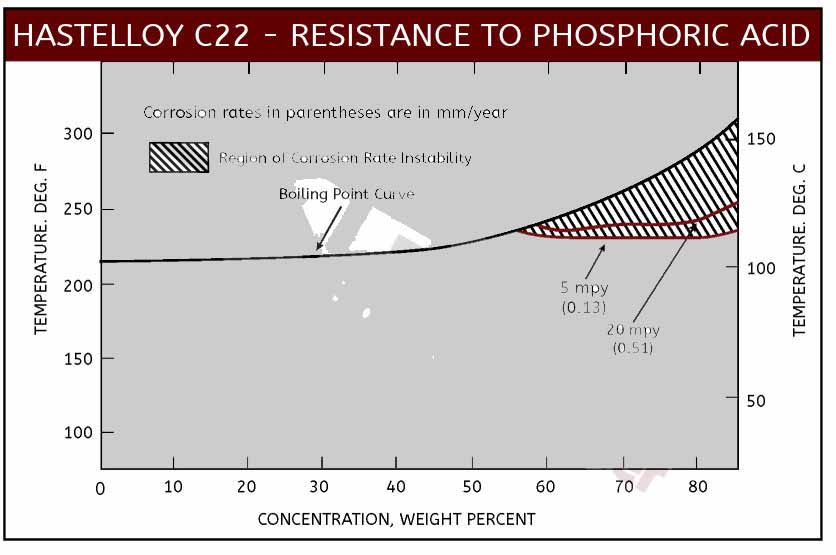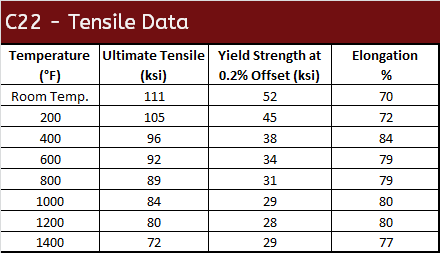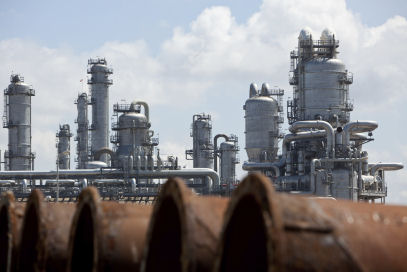
C22 nickel alloy screws offer better overall corrosion resistance to its sister alloy Hastelloy C-276, more specifically, it provides better protection when used in certain saturated wet chlorine environments. In addition, its high chromium content provides C22 screws much better resistance to oxidizing media that C276. This provides it exceptional resistance to chloride-induced pitting although, in most cases because of its availability, C-276 screws are a more cost-effective option especially in sizes less than 1/2". Hastelloy C22 screws are best known for its resistance to pitting and crevice corrosion – which is unmatched in the high performance nickel alloy class. Use of C22 screws should be limited to temperatures below 1250°F due to the formation of detrimental phases which form above this temperature. Click for detailed chemistry and specifications information on Hastelloy C22 nickel alloy screws. C22 mechical properties and tensile data is also available.
Availability: Hastelloy C22 screws are generally available in 1/2" sizes and larger due to materials availability. Most C22 screws are made to order.
Corrosion Performance
- Hastelloy C22 Corrosion Data
- Sulfuric Acid
- Hydrochloric Acid
- Nitric Acid
- Phosphoric Acid
Key Benefits
- Alloy C-22 screws have outstanding resistance to pitting, crevice corrosion and stress-corrosion cracking
- Extremely high protection from wet chlorine environments
- Excellent resistance to a wide variety of chemical process environments including strong oxidizers such as ferric acids, acetic anhydride, hot contaminated media (organic and inorganic), and seawater and brine solutions
- Similar overall corrosion protection compared to C276
- Very ductile, exhibits excellent weldability
Welding
Alloy C22 is considered the best alloy to use as universal weld filler metal to resist corrosion of weldments. These C22 screws will resist the formation of grain boundary precipitates in the weld heat zone, which make them ideal most chemical process applications in the welded condition.
Uses
- Hastelloy C22 screws protect extensively against the most corrosive flue gas desulfurization systems and the most sophisticated pharmaceutical reaction vessels
- Chemical process industries depend on C22 screws for use in equipment like flue gas scrubbers, chlorination systems, sulfur dioxide scrubbers, pulp and paper bleach plants, pickling systems, and nuclear fuel reprocessing
Resources: Hastelloy Torque Spec, Flange Dimensions, Flange Bolting Chart
Hastelloy Fastener Types: Bolts, Nuts, Screws, Studs, Threaded Rods, Washers
Flange Types Available: Blind Flanges, Lap Joint Flanges, Slip On Flanges, Socket Weld Flanges, Threaded Flanges, Weld Neck Flanges
Hastelloy C22 Screws Chemistry & Specifications
C22 alloy, UNS N06022, has better overall corrosion resistance in oxidizing corrosives than C-276 and Inconel 625 alloys due to the higher chromium content. Outstanding resistance to localized corrosion and excellent resistance to stress corrosion cracking. This alloy has limited availability and can be made into fastener in larger diameters only (1/2" and greater in size).
Hastelloy C22 Specifications: SB 575/B 575, SB 574/B 574, SB 366/B 366 SB 462/B 462, SB 564/B 564 SB 462/B 462, 17744 No. 2.4602 NiCr21Mo14W, NACE MR0175 ISO 15156, Werkstoff 2.4602

MECHANICAL PROPERTIES OF HASTELLOY
Hastelloy Corrosion Data
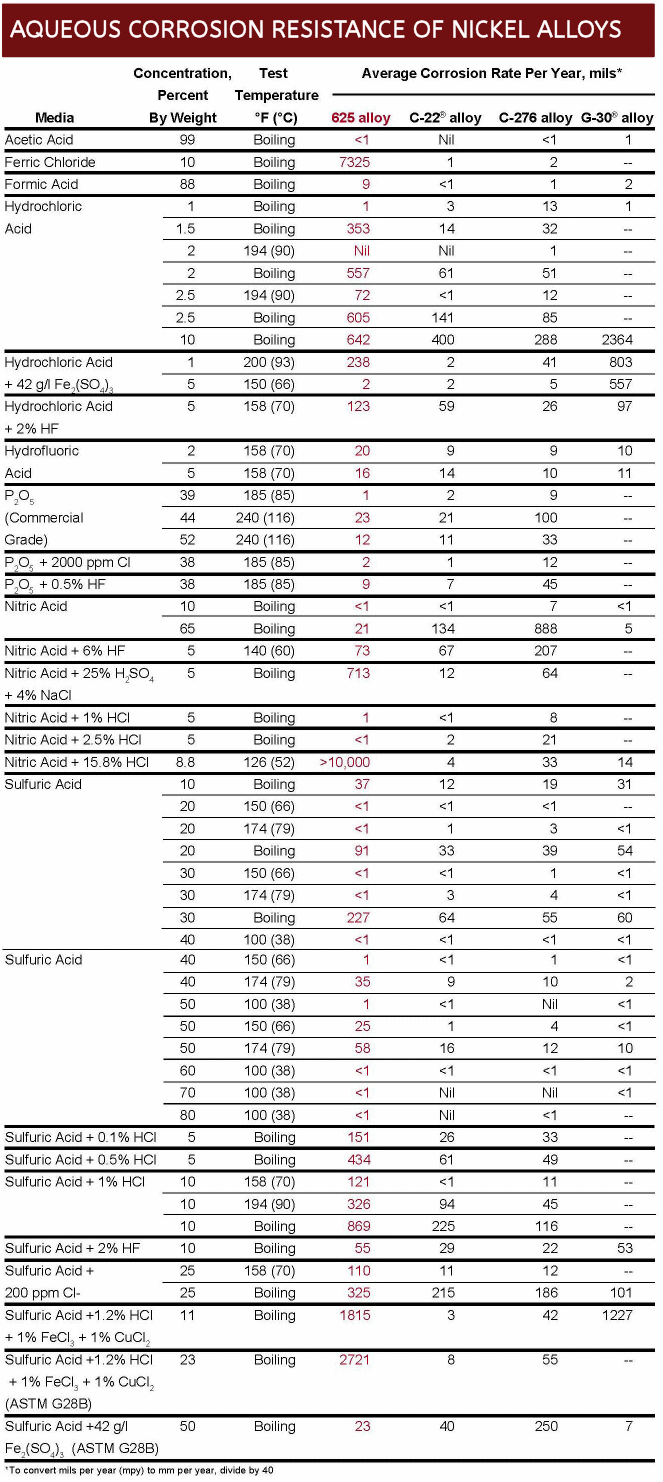
Hastelloy C22 Sulfuric Acid Corrosion Performance
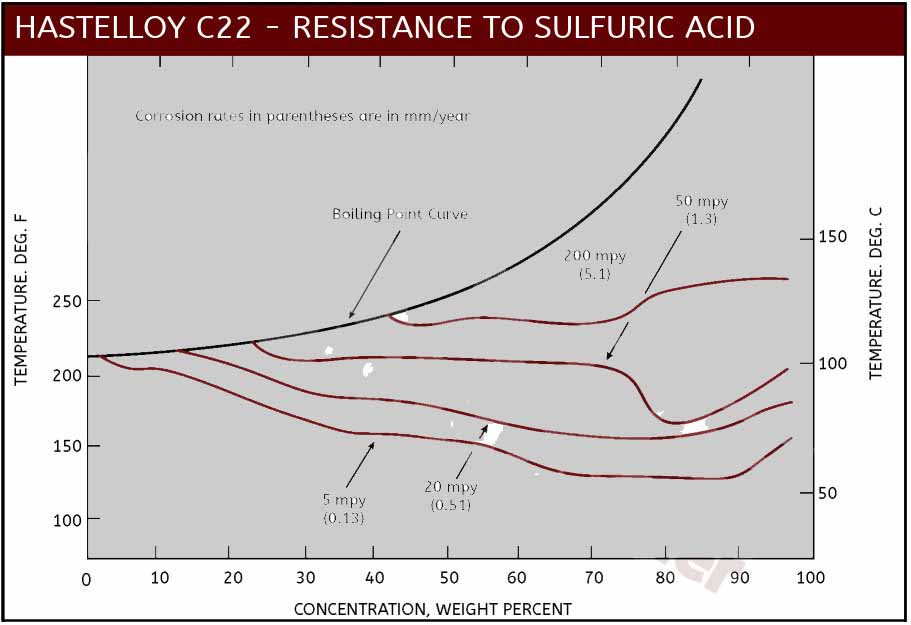
Hastelloy C22 Hydrochloric Acid Corrosion Performance
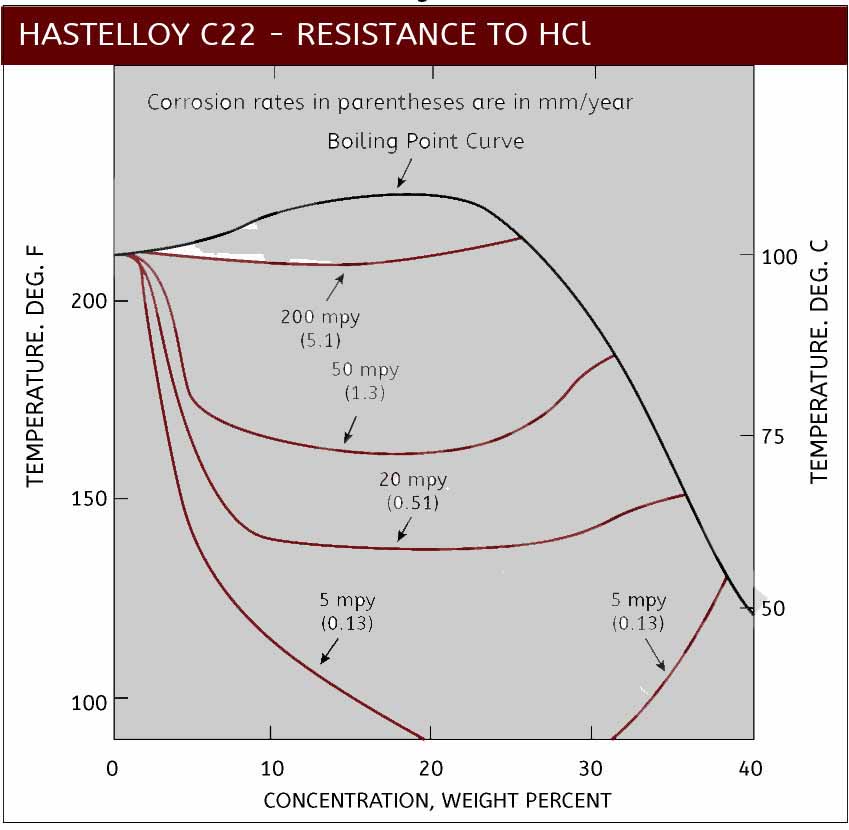
Hastelloy C22 Nitric Acid Corrosion Performance
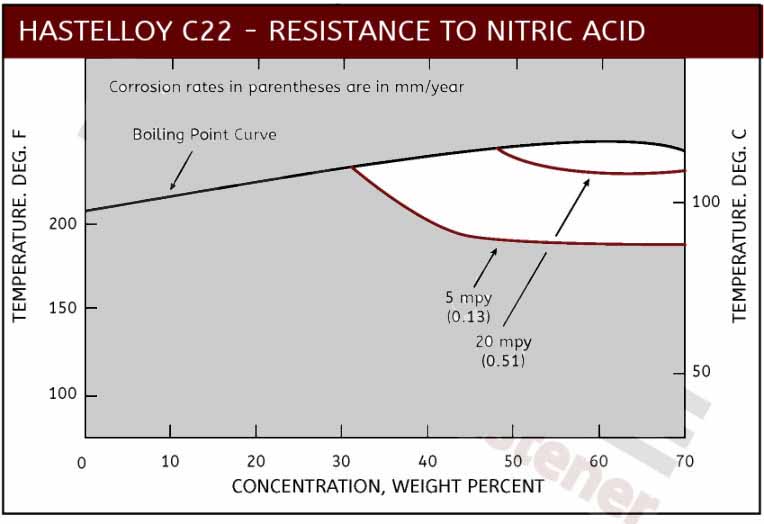
Hastelloy C22 Phosphoric Acid Corrosion Performance
